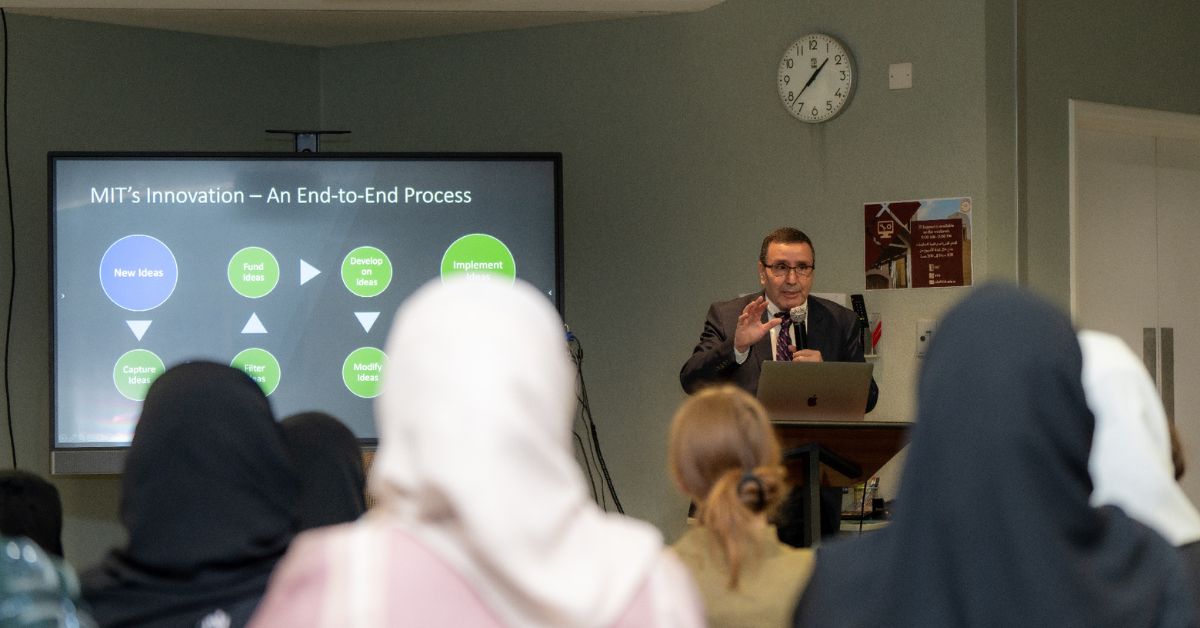DUBAI, UAE — Between 2013 and 2019, Saeed Alnofeli worked tirelessly to develop a prototype for tracking camels in the desert. Saeed Alnofeli, an engineer-turned-entrepreneur and founder of hardware startup Jamalytic, aimed to introduce a unique product to the Middle Eastern market. While his startup gained recognition and secured patents, it ultimately didn’t succeed.
“At that time, no one grasped my vision for Jamalytic because the concept was still novel in the Middle East. Many investors doubted its viability,” Alnofeli said. The entrepreneurial environment for hardware and deep-tech startups was still emerging, and a lack of mentorship and funding hindered its growth. In essence, the market wasn’t prepared for expansion.
Given the limited funding, scarce research and development (R&D) centers, and underdeveloped infrastructure, deep-tech companies in the Middle East have found it challenging to thrive. As a result, entrepreneurs like Alnofeli have become disillusioned by the absence of a supportive ecosystem for cultivating new Middle Eastern brands.
“Deep tech relies heavily on R&D as its business model’s driving force. These startups often originate from universities, based on potentially groundbreaking yet nascent technologies. Consequently, the time to market for such innovations is extended,” said Dr. Saeed Alhassan Alkhazraji, an Emirati professor-turned-entrepreneur and co-founder of deep-tech startup Manhat, which concentrates on food and water security.
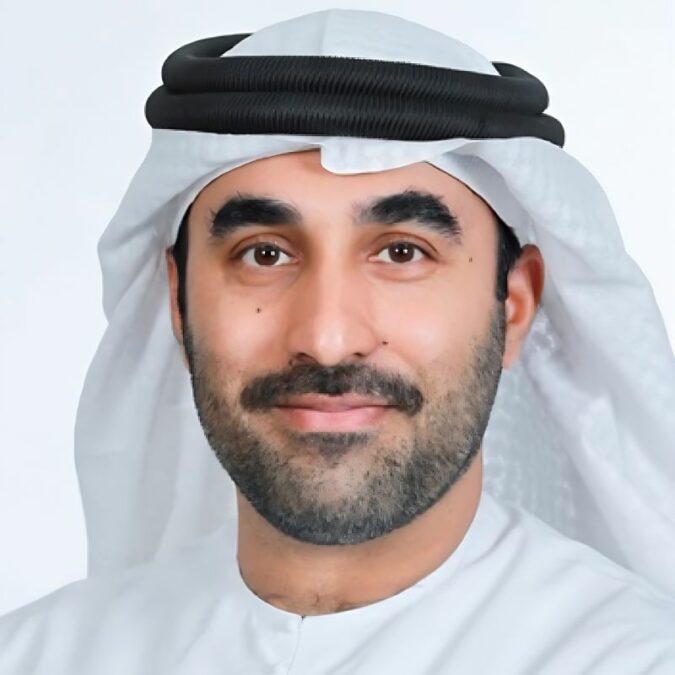
Alkhazraji believes that startups often falter because they can’t profit from the intellectual property (IP) they’ve painstakingly developed over extended periods.
“While there’s interest in universities in developing IPs, patents, and industrial designs, the real challenge lies in monetizing these assets. For many deep-tech startups, the primary hurdle is sustainability and profitability,” Alkhazraji said, emphasizing the need to establish a significant presence of deep-tech startups in the region.
Confronted with such indifference, many entrepreneurs and experts question if there are adequate resources to back R&D in the deep-tech arena.
Deep tech relies heavily on R&D as its business model’s driving force. These startups often originate from universities, based on potentially groundbreaking yet nascent technologies. Consequently, the time to market for such innovations is extended.
Dr. Saeed Alhassan Alkhazraji, Co-founder of Manhat
Dr. Hector Hernandez, CEO of Tulif Holding, feels that resources are limited. “R&D in the deep-tech sector is a complex interdisciplinary effort demanding a long-term dedication to infrastructure and talent development. There’s little patience for it in today’s global business models,” he said, speaking from extensive experience in genomics, metabolic engineering, and biotechnology.
Hernandez believes there’s a shortfall in nurturing talent capable of unconventional problem-solving. “There’s considerable effort put into product development processes, but not enough focus on profound problem-solving skills,” he said.
To illustrate his point, Hernandez points to institutions in the US and Europe. “Transitioning from an idea to a tangible product requires foundational support. Places like Cambridge and Boston have invested heavily in creating such infrastructures, establishing labs to evolve ideas beyond academia. Cambridge Innovation Center and Ginkgo Bioworks are prime examples,” he said.
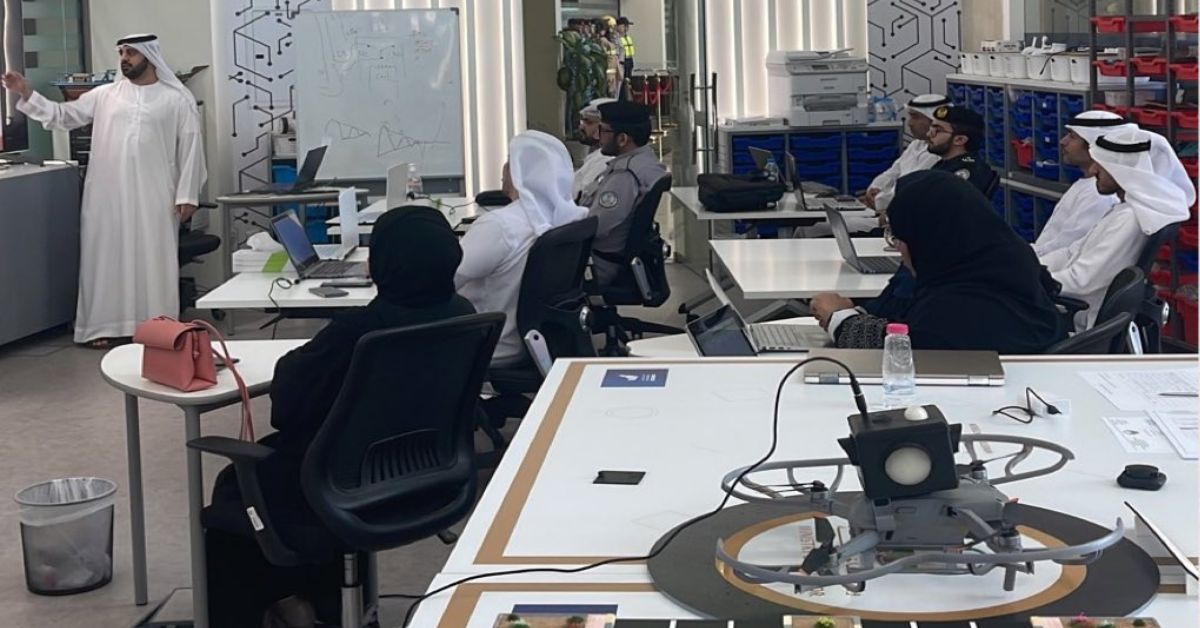
He identifies a glaring gap in the region: the absence of a robust ecosystem. There’s a need for a significant group of interdisciplinary individuals to collaborate and exchange ideas.
While the morale of entrepreneurs in the deep-tech sector might have waned in recent times, MENA-based startups secured a notable $35.6 million in June 2023, pushing the mid-year funding total to an impressive $1.6 billion, reported Wamda.
The UAE clinched the 31st position in the Global Innovation Index 2022, edging closer to the world’s top 30 innovative economies. Solidifying the MENA region’s global standing in innovation are countries like Saudi Arabia (51st), Qatar (52nd), Kuwait (62nd), Morocco (67th), Bahrain (72nd), and Tunisia (73rd).
In the venture capital (VC) landscape, sectors like food tech and fintech continue to be favored. It raises the question: are deep-tech and hardware startups still largely sidelined, despite their significance to the MENA economies?
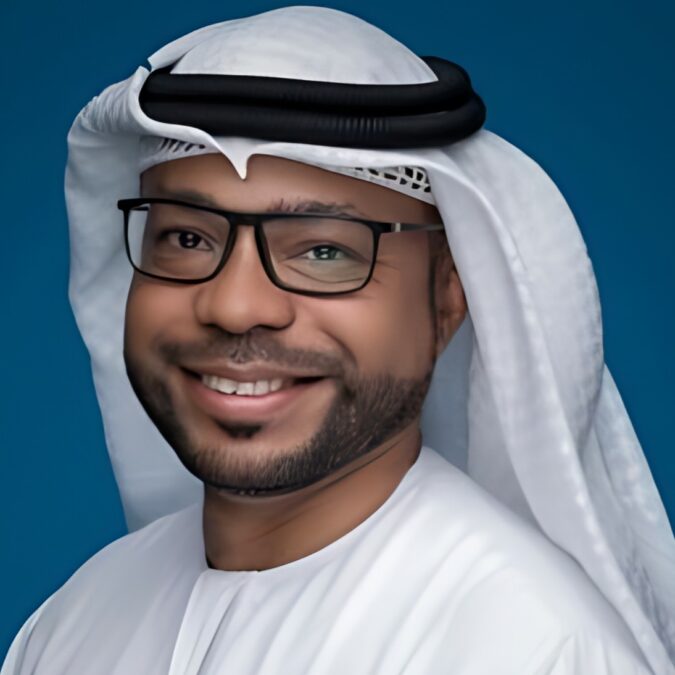
Alnofeli, now a Director at in5 Innovation Centers, which aids early-stage startups in scaling into commercially viable ventures, sees a silver lining. “The upside is we’re no longer playing catch-up. We’re on the right trajectory. There’s top-tier research underway in areas like artificial intelligence (AI) and Web3, which wasn’t the case before,” he said.
Alnofeli offers a unique perspective on how the UAE’s entrepreneurial landscape has transformed in recent years. “For a long while, the primary goal of quality education was for local Emiratis to secure positions in global firms, not to establish their own enterprises. A shift began around 2010 when Emiratis started entertaining the idea of entrepreneurship. This momentum surged when 2015 was designated the ‘Year of Innovation’ by the UAE Cabinet. Conversations around innovation, entrepreneurship, and local initiatives became prevalent.”
Yet, any transformation requires time. In a region where major corporations traditionally sourced high-tech solutions from overseas, the concept of local enterprises crafting tech tools tailored to regional challenges was groundbreaking.
“Today, both our leaders and the broader community recognize the importance of locally crafted, advanced technologies. The landscape is evolving. This is evident in the growing emphasis on engineering and creative thinking, and it’s why entities like G42 and Mubadala are flourishing,” said Alnofeli.
This optimistic outlook is validated by the surge in investments in tech institutions. For example, Saudi Arabia’s King Abdullah University of Science and Technology (KAUST) has unveiled a $200 million Deep Tech Innovation Fund to bolster Kingdom-based deep-tech startups.
Just as we need more educational institutions to back deep tech-focused R&D, we also require more incubators. There’s a prevalent argument that by 2030 we aim to produce 30 unicorns. The more pressing question is: what steps are we prepared to take to achieve this?
Saeed Alnofeli, Director at in5 Innovation Centers
In a similar vein, Alnofeli highlighted the role of the UAE’s Khalifa University, which is singularly focused on producing graduates specialized in Intellectual Property (IP). To further invigorate the deep-tech ecosystem, Beta Lab was recently inaugurated in Saudi Arabia. Backed by the Saudi Ministry of Investment, Future Investment Initiative Institute (FII), and KBW Ventures, it operates as a VC and co-creation studio, concentrating on nurturing deep-tech startups.
Thanks to support from the government and other institutions, entrepreneurs in the Middle East have more reasons to innovate and fewer reasons to be discouraged.
For example, a startup named DERQ has utilized AI to devise solutions for road safety and traffic management. Desert Control has introduced climate-smart agritech solutions to address desertification, soil degradation, and water scarcity. Sentient Labs focuses on water management and quality monitoring, while Manhat aims to bolster water and food security in the region using its unique technology solutions.
Discussing Manhat’s approach, Alkhazraji said, “Our immediate objective is to finish the pilot, demonstrating that we can effectively grow crops – like Alfalfa, used for cattle feed – using our proprietary technology and projecting the cost of cultivation. A major regional challenge is the steep water cost for crop growth. In our model, we generate water using solar energy, enabling sustainable, large-scale crop production.”
Hernandez also expresses optimism about the transformations he observes in the region. “Regional governments have made substantial, long-term commitments to building academic R&D infrastructure, collaborating with leading R&D universities globally. The UAE has established a regulatory framework that assures international companies of long-term R&D investments in the nation. The evolution of space and AI programs is thrilling, drawing top-tier talent from around the globe,” he said.
While R&D efforts are accelerating across the region, funding remains a hurdle. Institutional investors often seek rapid returns on their investments. Deep-tech innovations require time for development, testing, adjustments, and potential redesigns, necessitating investor patience in this domain.
R&D in the deep-tech sector is a complex interdisciplinary effort demanding a long-term dedication to infrastructure and talent development. There’s little patience for it in today’s global business models.
Dr. Hector Hernandez, CEO of Tulif Holding
Alnofeli laments how easily a social media influencer can monetize their content, while an entrepreneur holding a patent grapples to secure financial backing. “Our landscape is more favorable for social media influencers than for deep-tech startups. An influencer can produce a few engaging videos and earn money, while someone with a patent is left wondering where to turn for support and funding. Deep-tech startups require financial assistance at every stage of their lifecycle.”
Alkhazraji shares Alnofeli’s sentiment. “We’ve approached numerous VCs for Manhat, which is currently pre-revenue, and encountered a lack of interest,” he said. “Given that they’re investing their own money or funds from major investors, they’re reluctant to commit to ventures that might not yield returns for six to eight years. They lack patience. As a result, they often invest in fintech and other trendy sectors that promise quicker returns,” said Alkhazraji.
By and large, regional investors lack a comprehensive grasp of the deep-tech landscape. Naturally, they’re more inclined to invest in familiar territories rather than ventures they don’t fully understand. This reflects the prevailing investor mindset in the region.
“Institutional investors prefer others to take the initial risks with startups. Additionally, historically, regional universities haven’t been proactive in redefining their roles in the economy and society. We rarely see entrepreneurial-minded professors, which is another challenge,” Alkhazraji said.
Self-funding a deep-tech startup is a daunting task. In this context, adopting a low-tech strategy with a deep-tech vision might be more prudent. This approach involves developing adaptable technologies for prototypes until substantial capital is secured for the final product.
Alkhazraji believes there’s a pressing need to establish a grant system for startups. These grants would fund R&D efforts, helping bring products to market after IPs are developed at universities.
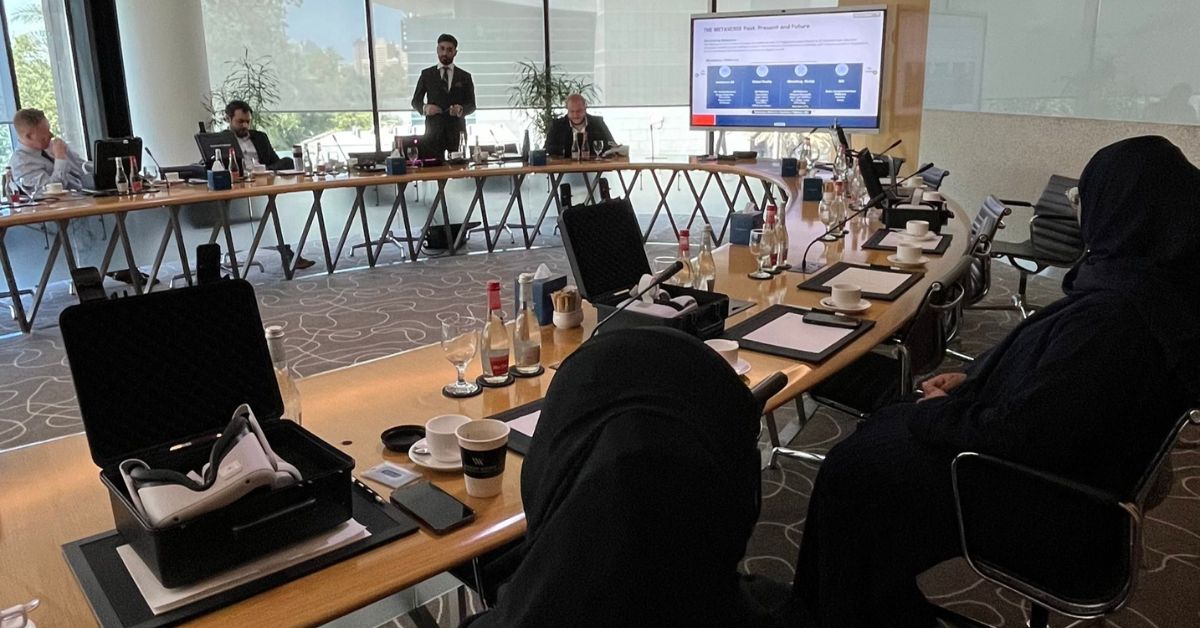
Citing an example, Alkhazraji said, “When BioNTech partnered with Pfizer to develop the COVID vaccine, they secured significant funding from institutional investors in the initial round. At that point, there was no assurance that the vaccine would be effective. Yet, these investors placed their trust in the science, the founders, and the ecosystem. They gave the technology an opportunity to flourish and become a catalyst for economic activities.” The COVID vaccine reportedly generated around $37 billion in 2021 and $32 billion in 2022.
“In our region, there’s skepticism about what local universities can achieve. As success stories begin to surface, both public and private sectors will be more inclined to invest, confident in the solutions’ efficacy,” added Alkhazraji.
Interestingly, even venture capitalists (VCs) often depend on government funding. Much like startups, they raise capital from government-backed funds, which they then invest in startups. However, in this process, incubators and accelerators tend to be sidelined. “That’s why it’s vital to bridge the gap from university research to transforming a startup into a commercially viable entity,” Alnofeli said.
Our landscape is more favorable for social media influencers than for deep-tech startups. An influencer can produce a few engaging videos and earn money, while someone with a patent is left wondering where to turn for support and funding.
Saeed Alnofeli, Director at in5 Innovation Centers
Meanwhile, countries like Saudi Arabia and Tunisia are emerging as hubs for deep-tech innovations. For example, BioNTech recently acquired the Tunisian deep-tech startup InstaDeep, aiming to enhance its capabilities in AI-driven drug discovery and development for future medical needs.
Simultaneously, the VC landscape, led by entities such as 8X Ventures, is beginning to support deep-tech startups, though reaching a critical mass remains a distant goal. Alnofeli, the entrepreneur behind the now-defunct startup Jamalytic, strongly advocates for increased support for the deep-tech sector from governments and investors.
“Just as we need more educational institutions to back deep tech-focused R&D, we also require more incubators. There’s a prevalent argument that by 2030 we aim to produce 30 unicorns. The more pressing question is: what steps are we prepared to take to achieve this? To realize this vision, we need a greater number of incubators, grants, and other forms of support to help these companies launch and expand,” he said.

